Why Labour?
History of the Labour Party
We’ve been fighting for a better, fairer Britain for over 100 years. Discover some of our most profound achievements and greatest legacies.
Labour’s History
The Labour Party has always been about people. It was formed to give ordinary people a voice and has sought power in order to improve their lives. The fruits of this work have changed Britain for the better, through the most progressive governments in our country’s history.
Ours is a proud history, with achievements – from the NHS to the welfare state – that have made a lasting difference to the lives of people across our country. Over the past century, we have been the Party of the many, not the few.
A new Party for a new century
The Labour Party was created in 1900: a new party for a new century. Its formation was the result of many years of struggle by working class people, trade unionists and socialists, united by the goal of working class voices represented in British Parliament.
It was this aim that united Keir Hardie and the colleagues who gathered for the famous inaugural meeting of the Labour Representation Committee at London’s Memorial Hall in February 1900. Ignored by the Tories and disillusioned with the Liberals, they gathered together to push for change.
Early years and into government
Slowly but surely, the Party grew. The first election campaign in 1906 saw 26 MPs elected to Parliament – together they chose Labour as their official name.
That early growth continued, with more MPs elected in the years to follow, leaving Labour well placed to challenge for power by the time of the 1924 election. It was this election which saw the first Labour government in our country’s history with Ramsey MacDonald the Party’s first Prime Minister.
The first Labour government only held office for a short time, but its achievements were notable. Despite having no majority it passed legislation to improve housing, education and social insurance while also addressing unemployment.
The 1924 government lasted only a few months, five years later came the election of the second. Dominated by the world economic crisis, the following two years were focused on action to tackle the unemployment of the Great Depression. It was not an easy Parliament and the 1931 election saw only 52 Labour MPs elected.
War, the 1945 Government and onto the future
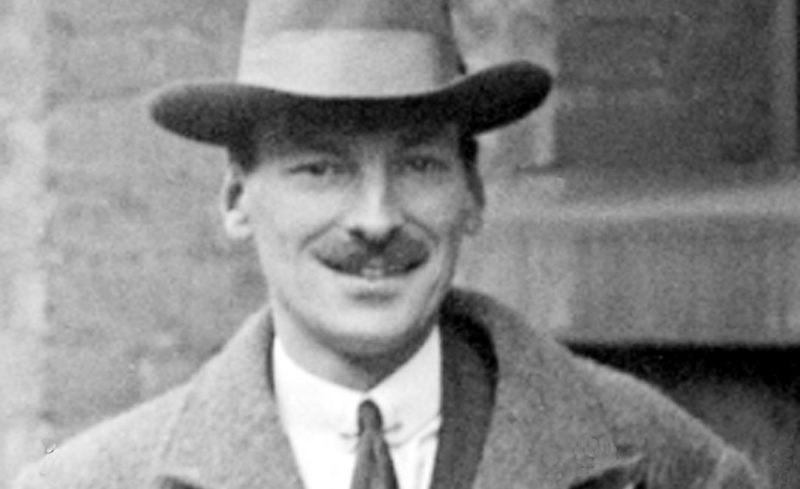
Fortunately one of those who remained after the 1931 election was Clement Attlee. He became Deputy Leader in 1931, working with a new generation like Ernest Bevin and Hugh Dalton to turn the Party’s fortunes around, before being elected Leader in 1935.
By the end of World War II, the British public were crying out for change. Labour would lead that change.
Our manifesto ‘Let us Face the Future’ laid out a bold vision, pledging to destroy the five ‘evil giants’: want, squalor, disease, ignorance and unemployment. It was a message which captured the imagination of the country and took Clement Attlee into Number 10 on the back of a landslide, winning 393 seats.
Attlee’s Labour government wasted little time enacting visionary change, introducing social security, bringing key industries back into public ownership and introducing a major programme of house building, providing safe and secure homes.
But it was the Attlee government’s introduction of the National Health Service which will rightly go down as Labour’s greatest achievement. Spearheaded by Health Secretary, Nye Bevan, the creation of the NHS has transformed our country, removing the anxiety of illness from millions of families. To this day the NHS is a national treasure and Labour will always protect it.
The Wilson years and onwards
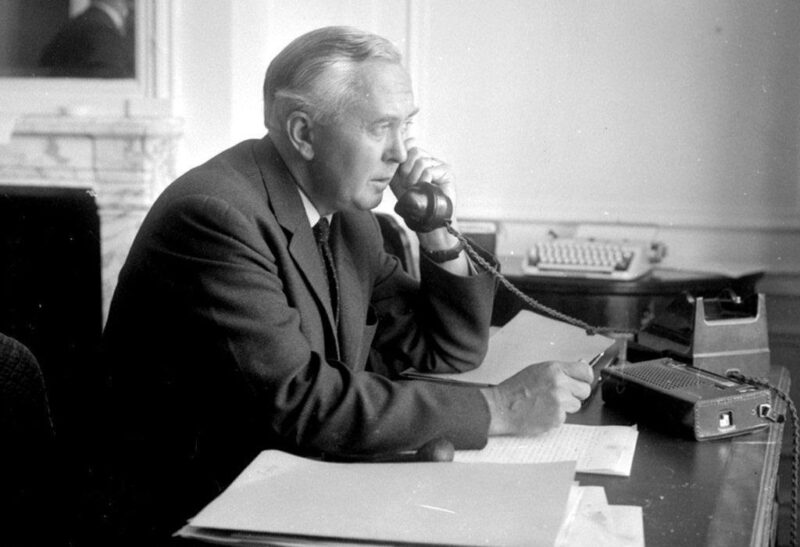
Despite winning nearly 50 per cent of the vote, Labour lost office in 1951. Attlee was succeeded by Hugh Gaitskill and would not return to power until 1964 under the leadership of Harold Wilson. The Labour governments (1964-70 and 1974-79) under Wilson and then James Callaghan were marked by a period of great change: the permanent ending of the death penalty,decriminalisation of homosexuality, legislation to outlaw racial discrimination, and the establishment of the Open University.
It was Barbara Castle, our Secretary of State for Employment, who also brought about significant social change, as she introduced the groundbreaking Equal Pay Act of 1970. Once again Labour men and women led the way in modernising and reforming Britain to improve the lives of millions.
The election of 1979 began the wilderness years of opposition. Initially, under Michael Foot, the party began a period of contemplation and ultimately renewal. His successor, Neil Kinnock took on the work of reconstruction, with modernising reforms which would be continued by John Smith who introduced One Member One Vote (OMOV) to further democratise the people’s Party.
New Labour
Following the death of John Smith in 1994, Tony Blair was elected Leader, ushering in the era of New Labour. The reforms introduced in this era – are vitalised policy programme built on Labour values hand-in-hand with a modernised party machinery – would lead to the landslide General Election win of 1997.
After 18 years under the Tory rule, Labour offered the hope of a better Britain. The governments that followed – under Tony Blair then Gordon Brown – brought many of the changes our country desperately needed.
Record investment in the NHS, schools and the police rescued our public services. The introduction of the National Minimum Wage and the New Deal meant more jobs paying a decent wage, while devolution to Scotland, Wales and Northern Ireland put power in people’s hands while peace came to the latter through the landmark Good Friday Agreement.
In power Labour put into practice our values of equality and social justice, introducing Civil Partnerships, the Equality Act, the Human Rights Act and legislating for equality of opportunity for all. We cancelled up to 100 per cent of debt for the world’s poorest countries and brought about the world’s first Climate Change Act.
For the many, not the few: 2010, Ed Miliband and Jeremy Corbyn
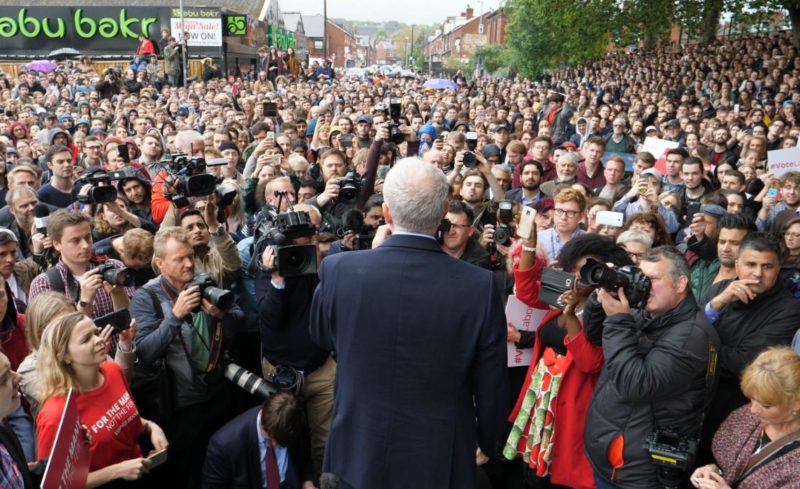
The late 2000s saw a global economic crisis and for Labour the loss of power at the 2010 election. Faced with a Conservative government which was pressing forward with an austerity agenda, the leadership of Ed Miliband saw Labour prioritise working people and the protection of public services. He also used his period in office to introduce important party democracy reforms.
Following the election of 2015, a change was in the air for Labour. With a bold vision for change, renewal, and a robust anti-austerity agenda, outsider Jeremy Corbyn won the party’s leadership election by a landslide. Under him, the Party tripled in size with new members inspired to join a mass movement for change and the work began on a new transformative policy agenda that takes on the powerful few on behalf of the many.
The snap election of 2017 provided an early test. The Conservatives expected to be returned with a landslide but with Jeremy Corbyn at the helm and our mass membership campaigning, Labour confounded expectations. Our manifesto ‘For The Many, Not The Few’ laid out a transformative vision of a better Britain: a Real Living Wage of £10 an hour; scrapping tuition fees; mass house building; serious investment in our public services; public ownership of rail, water and post; and a country that works for the many, not the few.
The electorate responded, giving Labour its biggest increase in the share of the vote since 1945, returning 262 MPs, 45 per cent of whom are women, meaning Labour today has more female MPs than all the other parties combined.
Keir Starmer
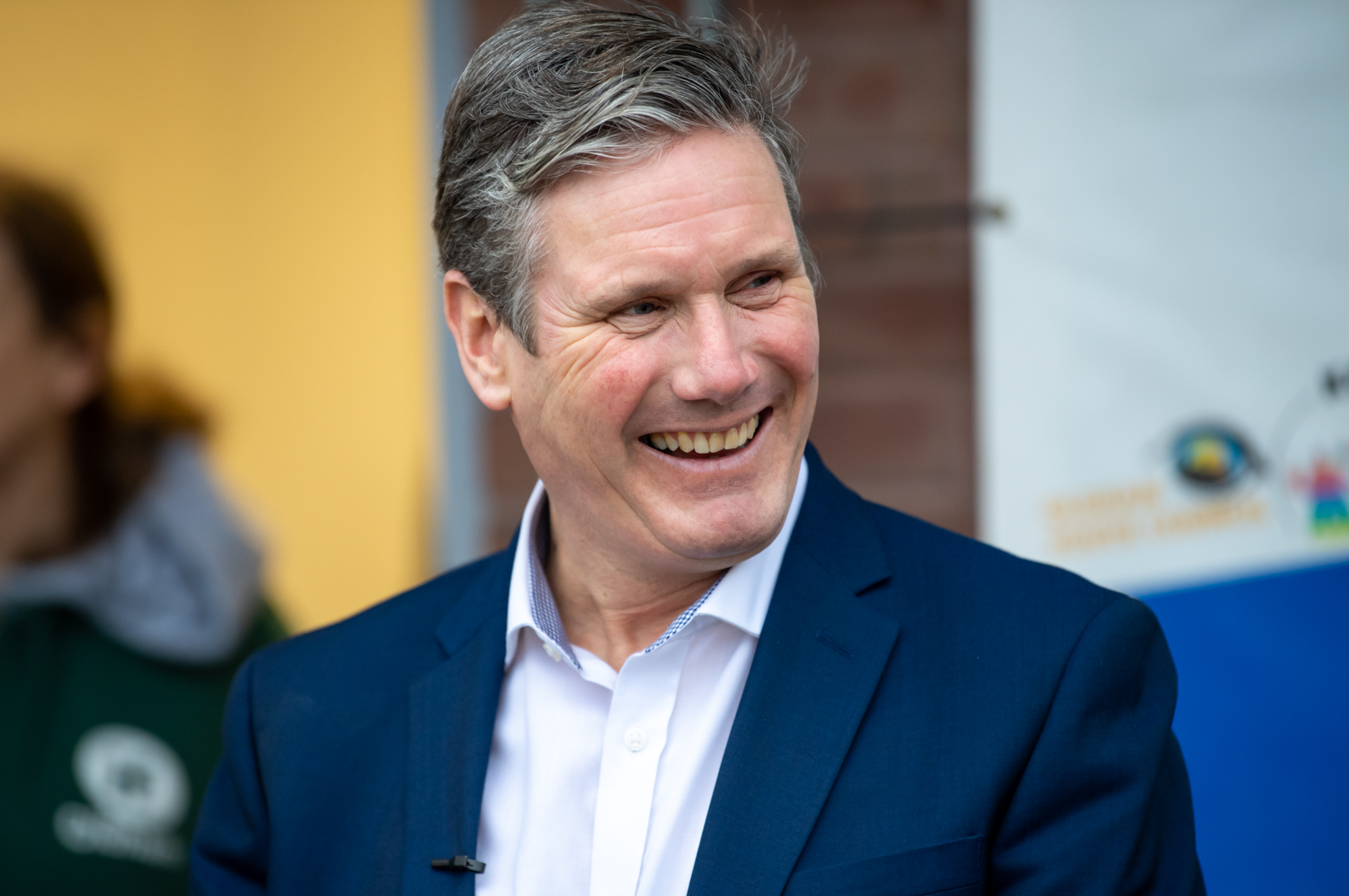
Keir Starmer is a husband, father, and former lawyer who has fought for fairness his whole working life. He is now leader of the Labour Party of Great Britain.
For decades, Keir has stood up against the powerful on behalf of ordinary people who needed help. Keir is driven by his passion to make the world a better, fairer place for working people. This drive led him to stand as an MP and later become leader of the Labour Party.
The son of a tool maker
Keir grew up in a small town called Oxted, in Surrey. His dad worked as a toolmaker on the factory floor and his mum was a nurse for the NHS.

Like many families, they faced challenges. His mum battled a rare, severe illness for all her life. Keir spent lots of his childhood seeing his mum go into hospital, where his father who was devoted to his wife would always be at her side.
Despite the challenges this presented for Keir, he was hugely influenced by his mother’s courage and determination to live her life despite her illness. It also gave him a deep gratitude for the NHS. To this day, he is certain of just how valuable our health service is.
Keir was obsessed with football and still plays 5 a-side every Sunday with friends. He describes himself as a “box-to-box midfield general,” although his teammates may have different views. A lifelong Arsenal fan, he has a season ticket at the Emirates.

Keir studied hard to sit the 11-plus which he passed and went to the local grammar school. At 18 years old, Keir made his parents so proud by getting a place at Leeds University to study law, becoming the first in his family to go to university.
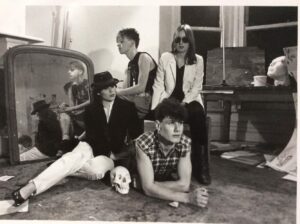
Standing up for ordinary people against the powerful
Keir got his qualifications as a lawyer in 1987 and began working as a barrister.
He spent a lot of his time providing free legal advice defending ordinary people against the powerful. He worked on some high-profile cases, taking on fights against the odds with Shell and McDonalds and working with the National Union of Mineworkers to prevent the Tories’ pit closures.

After that, Keir was the legal advisor to the Northern Ireland Policing Board for five years. He helped make sure the Good Friday Agreement’s recommendations were followed to help bring peace to Northern Ireland after decades of bloody conflict.
Family life
It was during this time when Keir first met his wife, Victoria, who now works for the NHS.
Keir and Victoria married in 2007. The couple have two children.
Serving his country
In 2008, Keir became Director of Public Prosecution. putting him at the head of the Crown Prosecution Service and its thousands of employees. He took the role because he wanted to serve his country and make it a better, safer place.
Keir’s strong sense of justice and desire to stand up for those who needed a voice led his work as Chief Prosecutor. He helped bring Stephen Lawrence’s murderers to justice; improved support for victims of sexual and domestic violence; and prosecuted MPs for misuse of expenses.
Keir received a knighthood in 2014 for his services to criminal justice. He invited his parents to Buckingham Palace for the event, who in turn brought along the family dog. His Dad said:
“We were the proudest parents there.”
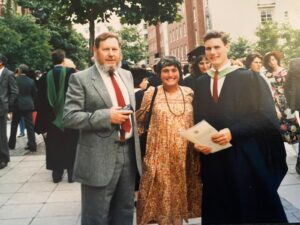
Standing up for working people with the Labour Party
Later in life, Keir’s drive to make the world a fairer place saw him enter politics. He was first elected to Parliament in 2015, at the age of 52. He serves as the member for Holborn and St Pancras, where he has lived for many years with his family.
He was Shadow Secretary of State for Exiting the European Union (2016-2020) and Shadow Immigration Minister (2015-2016).
In March 2020, Keir was elected as Leader of the Labour Party. He said:
“It is the honour and privilege of my life. I will do my utmost to guide us through these difficult times, to serve all our communities, and to strive for the good of our country.”
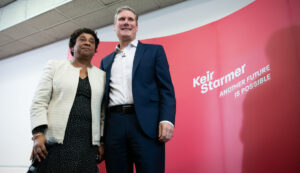
Building a stronger future together
As we emerge from the pandemic, our country stands at a crossroads.
Down one path is the same old inequality of opportunity and lack of security. The very well off thrive, while the rest of us are left behind.
The Labour path is the promise of a better, brighter, more secure, more prosperous future.

